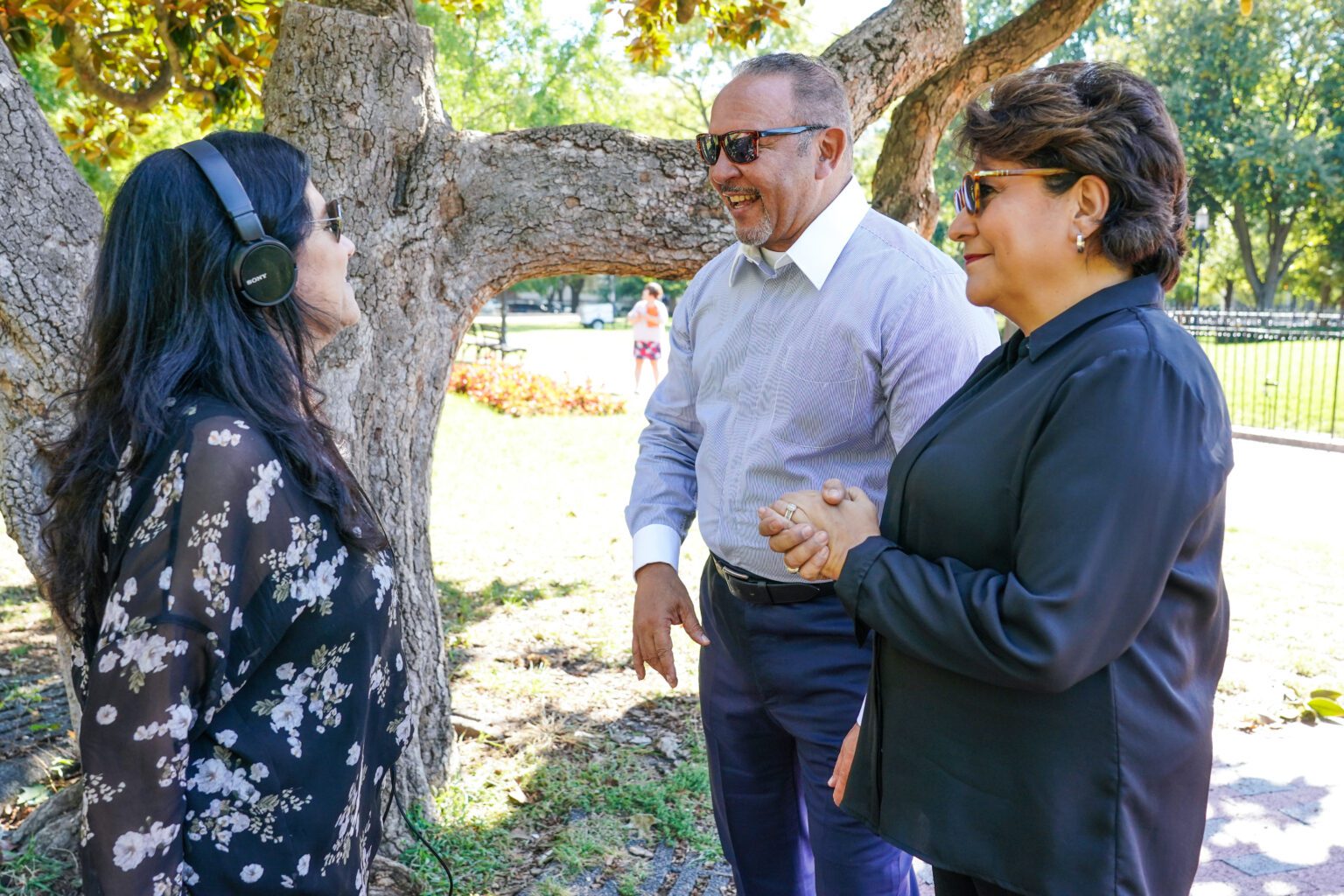After spending considerable time, money and energy making her first documentary, “Harlan County, USA,” director Barbara Kopple wasn’t sure anybody would ever see it. But at the 1977 Academy Awards, the film focusing on a Kentucky coal miners’ strike took home the Oscar in the Best Documentary Feature category.
“I just felt so fortunate to be able to film these people and their lives,”
Kopple, 76, said during a recent phone interview. “I was blown away when it got nominated.”
Kopple will share these insights, and many more, when she visits Bellingham to attend the seventh annual Cascadia International Women’s Film Festival, which takes place May 4–7 at the Pickford Film Center and beyond, and May 11–21 online.
As the honored guest at this year’s festival, the two-time Academy Award-winner — the second golden statue was for the 1991 documentary “American Dream,” which told the story of the 1985–86 Hormel strike in Austin, Minnesota — will be front and center for “A Conversation with Barbara Kopple” at 7:30 p.m. Friday, May 5, at Mount Baker Theatre’s Walton Theatre.

A reception at Hotel Leo will precede the moderated discussion with festival program director Claudia Puig, and a showing of Kopple’s most recent documentary, “Gumbo Coalition,” will follow it. Earlier in the day, “Harlan County, USA” will be screened at the Pickford, followed by a Director Q&A.
“What I want to do is encourage the people who want to be filmmakers in the audience to be (at the events),” Kopple said. “Have perseverance; if someone tells you no, don’t listen. Do what your passion and your heart tells you to do.”
Kopple has certainly followed her own advice over the years. Whether delving into the lives of female journalists stationed in combat zones during the Iraq War (“Bearing Witness”); going on tour with the Dixie Chicks (“Shut Up and Sing”); following the lives of celebrities and performers (“Fallen Champ: The Untold Story of Mike Tyson,” “A Conversation with Gregory Peck,” “Miss Sharon Jones!”); or looking at the links between young people who attended the original Woodstock music festival in 1969, and those who came to similar events in 1994 and 1999 (“My Generation”); Kopple has committed her career to telling other people’s stories while also opening movie-goers’ hearts and minds.
“Gumbo Coalition,” her latest cinematic endeavor, is no different. The documentary looks at big issues such as voter suppression and racism, while narrowing its lens to focus on two of the United States’ biggest civil rights activists, Janet Murguia (UniDos president) and Marc Morial (head of the National Urban League).
“It’s about modern-day civil rights,”
Kopple said. “It’s about their friendship and their coming together to look at the last three tumultuous years.”
Murguia and Morial are the kind of people Kopple said she loves to feature because they have a lot of passion when it comes to what they do.
“I want to make films that will inspire people to get involved,” she said. “I like to have hope and optimism in my films, and want people to feel they can do something, change something. I think everybody has a role to play and everybody has a voice. We can’t be silenced as people.”

Kopple will be in town for the entirety of the in-person portion of the festival, and said she plans on seeing as many films as she can and meeting as many people as possible. She’s excited about supporting other female filmmakers, and is looking forward to connecting with other directors who will be in town for the event.
The Cascadia International Women’s Film Festival officially kicks off Thursday, May 4, with a viewing of the feature film “Cinema Sabaya” — Israel’s entry as Best Foreign Film for the 2023 Academy Awards — but a free pre-festival screening of “Category: Woman” can be attended Friday, April 28, at Whatcom Community College.
“Cinema Sabaya” follows a group of Arab and Jewish women who attend a video workshop together to learn about filmmaking, and “Category: Woman” deals with four female athletes unfairly forced out of competition. Looking at the lineup of the 35 films which will be screened during the festival shows the subject matter will cover a wide array of topics and tales.
Cheryl Crooks, the festival’s executive director, called attention to a number of films she thinks people should be on the lookout for. Among them is “Call Me Dancer,” about a young man in Mumbai who goes from street dancing to becoming a world-class ballet dancer. The documentary is directed by Leslie Shampaine, who will be on hand at the screening and take part in various panels and related events.
Also of note, Crooks said, is the epic narrative “Bones of Crows,”
which is directed by Marie Clements and tells the story of a young Cree girl removed from her home and put into the Canadian residential school program.
Short films to keep an eye out for include “Pearl in the Window”
(about an older woman and her Latina caregiver) and “Tapping into Our History, Tapping into Our Future: Ayodele Casel”
(which follows the choreographer as she discovers and is energized by the Black tap artists who came before her).
Other films cover community conservation efforts in Canada, unlikely alliances, love stories, generational gaps, motherhood, Indigenous topics, ghost stories, family secrets and curses, art and activism, animation and more. And true to the name of the festival, the films are from around the globe and look far beyond the scope of life in the United States.
“With this year’s festival, our seventh,” Crooks said, “Cascadia will have presented the films of 220 women from 49 countries, including Slovenia, Macedonia, Hungary and Kyrgyzstan this year.”
The Cascadia International Women’s Film Festival takes place May 4–7 in person, and May 11–21 online. Prices vary, and some events are free. Get the full lineup of happenings at cascadiafilmfest.org.




